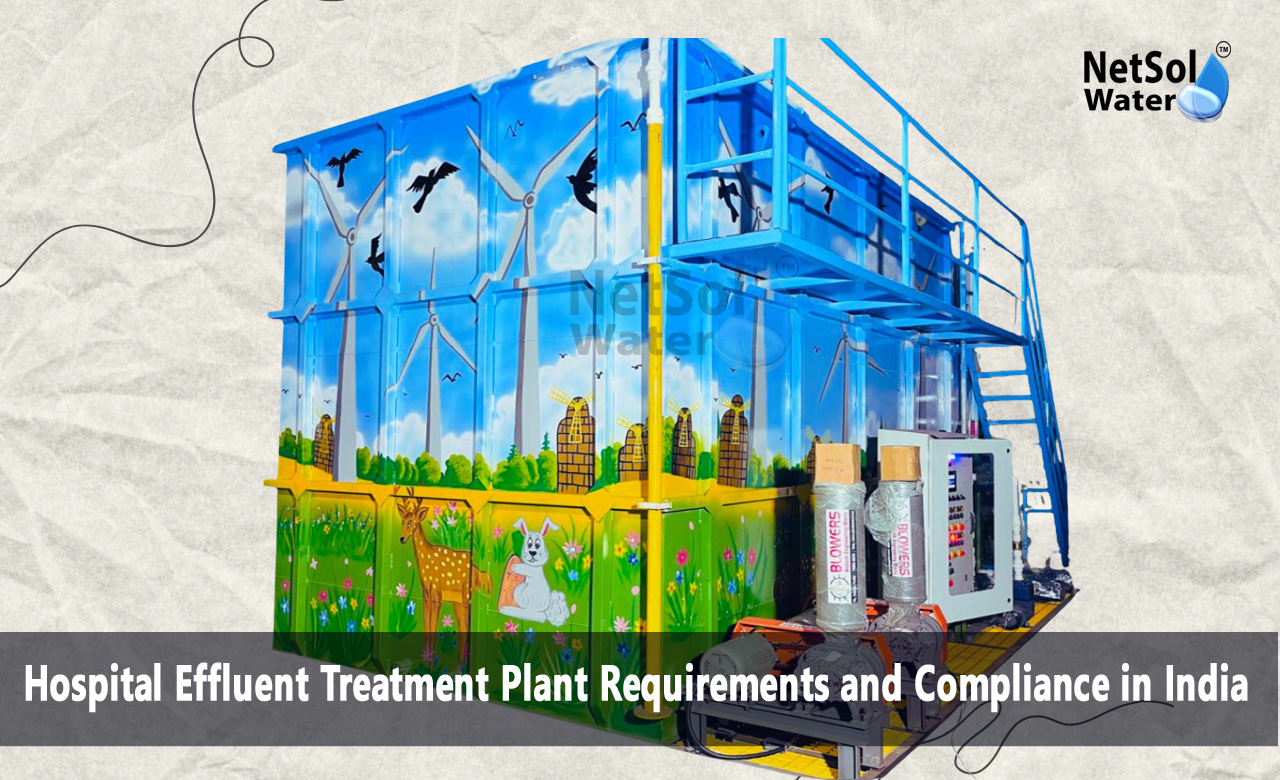Hospital ETP Plant Requirements and Compliance in India
Hospital Effluent Treatment Plant Requirements and Compliance in India matter for health and for the environment. Hospitals in India handle many types of waste from patient care, labs and cleaning that enter the wastewater stream. Cities and towns value their water bodies and their groundwater, and they expect medical facilities to keep waste out of rivers and wells. Netsol Water is the leading manufacturer and supplier that helps hospitals design and run plants that meet rules and that protect staff and the public.
Legal Framework and Standards
Hospitals must meet law and local norms so they do not harm people or the water. Let us have a look on some rules and the agencies that enforce them. These rules set limits for what can go into drains and rivers. They also tell hospitals to install a proper effluent plant and to keep it working well. Meeting these rules protects patients staff and the wider public. Hospitals that follow the rules also keep their image and avoid fines.
Regulatory Bodies and Permits
Indian law gives roles to many agencies and the hospitals must deal with them in a clear way. The pollution control boards at the state level check and approve wastewater plans and they issue permits that state what the plant must do. Health departments inspect the site and they check whether staff follow safe handling steps. Local municipal bodies may set extra limits for discharge into city sewers. Hospitals must file the right forms and they must renew permits on time. They must also keep records of tests and maintenance so that any inspector can find the proof that the plant works. Good records help the hospital show it meets hospital effluent treatment plant requirements and compliance in India.
Key Standards
Standards name what levels of contaminants the treated water may have and they name how often tests must run. These standards look at the solids, organic load, biological agents, and chemical content. The plant design must meet these limits in normal use and it must also handle spikes or high load events. The standards also ask for safe handling of sludge and for clear steps to remove pathogens before any reuse or discharge. Hospital staff must train in the cleaning and maintenance work because human error can cause a system to fail. By following these standards a hospital reduces health risk and it shows steady compliance with hospital effluent treatment plant requirements and compliance in India.
Technical Requirements and Design Considerations
Designers must think about the flow of the type of waste, seasonal changes, and how staff will run the system. Let us have a look on some key parts of plant design and how each part links to safe output and to the rules. A good plant removes solids reduces organic load and kills harmful microbes. It also handles sudden changes in flow and it stores and treats sludge in a safe way. The site must also keep space for testing and for easy access to pumps and filters. Designers must think of future changes so that the hospital can expand or change services without breaking the compliance.
Treatment Stages and Equipment
Treatment needs several stages that work in sequence so the output meets the standard and so the system avoids frequent failure. The primary stage removes solids and floating waste so the rest of the system can focus on dissolved matter and microbes. The secondary stage reduces organic load with biological processes that are simple to run. The tertiary stage gives extra cleaning and disinfection and it readies water for safe discharge or for reuse in cleaning and gardening. The plant must include reliable pumps clear flow meters and alarms that warn staff when a part fails. Staff must keep spare parts and they must test the alarms often. These steps help the hospital meet hospital effluent treatment plant requirements and compliance in India.
Monitoring and Reporting
Monitoring gives proof that the plant meets the rules and it helps staff spot trouble early. The hospital must sample the treated water and the raw inflow at set times and they must record the test numbers. The report must show levels of solids, chemical oxygen demand, biological count, and pathogen tests when required. Hospitals must also report any event that breaches a limit and they must show the corrective action they took. Regular checks of pumps filters and disinfection units help avoid breaches. A clear log book and a simple report format make it easier to keep the plant in good working order and to show this to any inspector who asks for evidence.
Conclusion
Good practice in Hospital Effluent Treatment Plant Requirements and Compliance in India keeps people safe and it protects water for all. Hospitals must follow the legal limits, install plants that match their needs and run clear tests and records. Netsol Water is the leading partner that can assess the site and can help set up a plant that meets the standards. If you manage a hospital or a clinic and you want help with design or with compliance, please get in touch to request a consultation or to learn more about practical steps and options.
Contact Netsol Water at:
Phone: +91-9650608473, Email: enquiry@netsolwater.com



